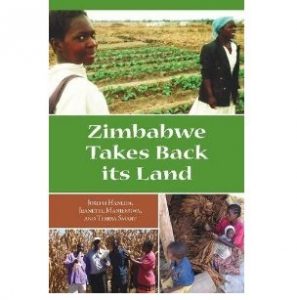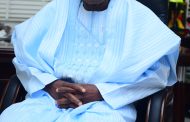
Robert Mugabe – Unclinching the fist at last but for which successor ?

Grace Mugabe (3rd from left) in a political dance with ZANU-PF leaders

President Robert Mugabe of Zimbabwe has left the world still guessing about when he plans to relinquish power after monopolising presidential power since the country’s independence in April 1981. His longevity in power has been harped upon in the explanation of the crisis that has engulfed the country. Many concerned observers now consider his exit from power as a requirement for post conflict peacebuilding irrespective of whether he was right or wrong in confronting Britain and her Western supporters on the land reform dispute between the two countries.
Media reports, especially News24, have quoted Mugabe as talking of retiring properly but without explicating what constitute a proper retirement in the context. Could he be referring to leaving power at the end of the current term next year or of something imminent? The language has significance because this is the first time Mugabe is speaking directly to the issue, thereby suggesting a new phase of his struggle. He is 91 years old and it is widely believed that he is exhausted although there is no knowing what might have happened if he were not there. And there is the fear whether what happens to most societies that have been held together by one man for a long time – they most often degenerate into utter chaos – could also apply this time. Africa is worried of presenting the world with women in mass motion from violence, with loads on the head, a child strapped to the back while more follow, trekking into more existential ordeal in poorly maintained refugee camps.
It would seem that Mugabe plans to leave soonest if what the media reports him as telling war veterans in Harare, the Zimbabwean capital say anything about his sense of fulfillment in contesting British over lordship in that country even as he is said to have admitted to a crumbling economy. In the State-owned Sunday Mail newspaper, for instance, is cited reports in which Mugabe is arguing he had used his time in office to “fend off the West’s spirited machinations to destroy Zanu-PF and the ideals the party stands for”, the belief that he had now “defeated… the British and Americans…”.
Although the more popular interpretation of the hint that it means Mugabe would not be standing for election in 2018 is seemingly contradicted by reports of endorsement of Mugabe for the presidency in 2018 elections across Mashonaland and Matabeleland, 2018 seems it. Any other things that appear to the contrary might be gimmicks, it is being said, although the endorsement raises the question of which of the Mugabes?: Robert Mugabe or Grace Mugabe?
It is still a waiting game about succession vis-a-vis the political economy crisis in Zimbabwe, arguably the most telling case study of the difficulty of nation building in post colonial Africa even where the problem is not barefaced corruption. The external context of nation building can be even more destabilizing than crisis of heterogeneity and identity conflicts




























